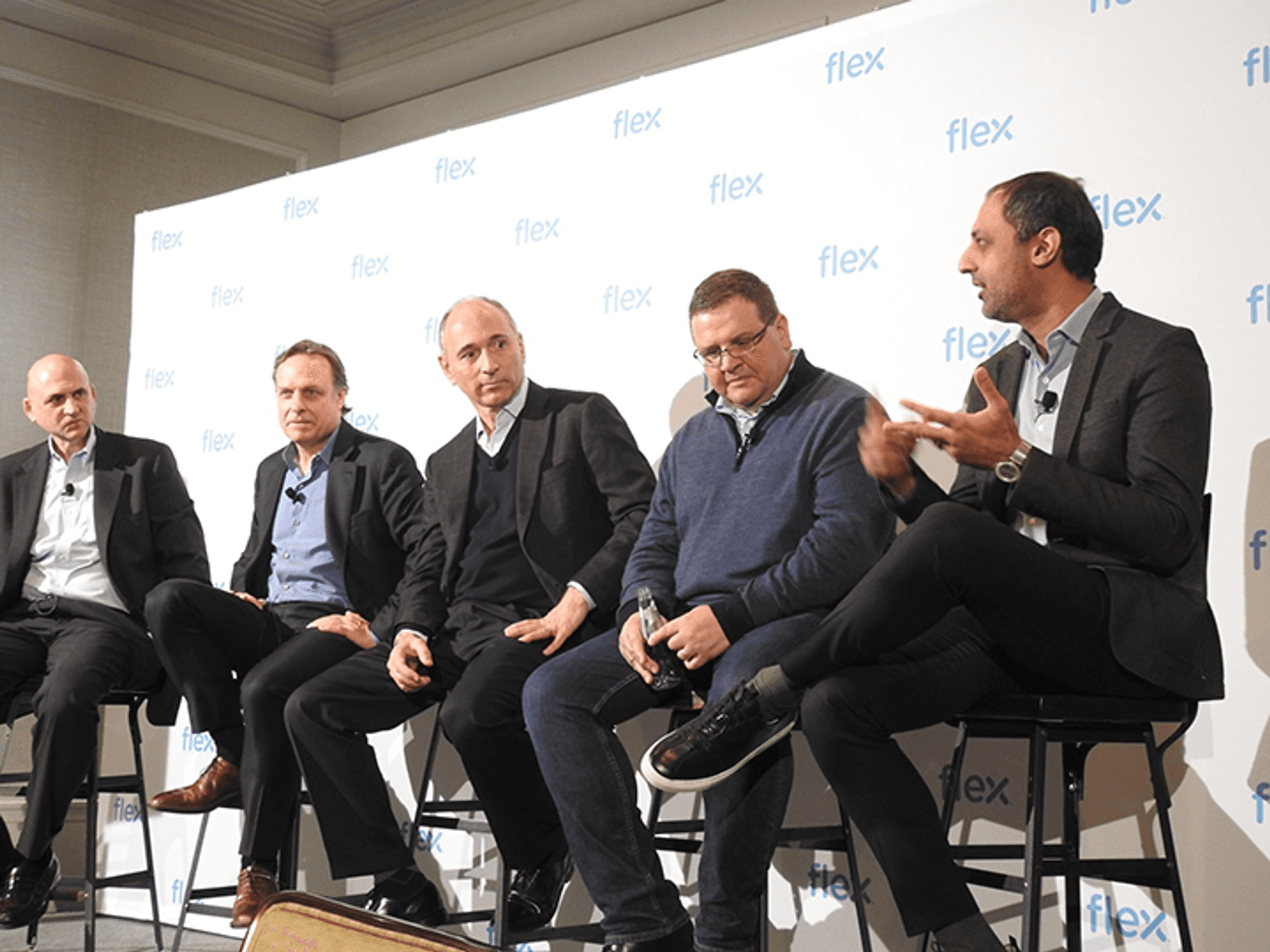Automotive and pharmaceutical? On the surface, these two industries don't seem to have a connection. But a panel convened by Flex at the J.P. Morgan Healthcare Conference in January found very clear ways in which pharmaceutical manufacturers could transform by modeling after the experiences of car manufacturers.

The panel brought together a unique group of executives with experience in both industries. It included Atif Rafiq, the senior vice president of Group IT and chief digital officer at Volvo; Dr. Gregory Moore, vice president of Healthcare for Google Cloud; Joe Jimenez, chairman and CEO of Novartis; Mike McNamara, CEO of Flex, and was moderated by Clifton Leaf, editor-in-chief at Fortune Magazine. Jimenez sits on the board of General Motors, while McNamara, who once was a production foreman at Ford, also served on the board at Delphi Automotive.
Panelists noted that there are mountains of data to mine for intelligence that will fuel productive disruption for their next Intelligence of Things™ products and services -- if these companies are willing to step outside of their comfort zone and build new partnerships.
“If you isolate engineering talent, whether it's from the auto, from pharma or from healthcare, our engineers, any engineers will build bright shiny objects that don’t quite hit the target,” said Moore, who comes from a family of car dealership owners. “One of my jobs has been to embed engineers side by side with medical professionals so we are actually building things that change workflows, move the needle forward.”
Jimenez said that Novartis is looking to leverage digital technologies in three core areas: How the company innovates, how it sells, and how it operates. “One of the lessons that I've taken away in terms of our business in pharmaceuticals from the automotive industry is that when the speed of change starts, it's going to accelerate so you'd better be ready,” Jimenez said.
The speakers agreed that healthcare companies must think about moving from discrete, siloed drugs, medical devices and therapies, to holistic, integrated systems that enable data interoperability. Machine learning and artificial intelligence will be paramount to generate automated, contextualized insights that can improve care delivery and patient outcomes.
With over $4 billion in revenue in both the automotive and healthcare industries, Flex brings a unique perspective having worked with leading automotive and pharmaceutical customers globally. “This rush towards technology, towards insights, towards data, towards software is not just in the automotive industry,” McNamara said. “It is coming into the healthcare industry, and the journey towards digitization is never going to end. The digital journey isn't a discrete event, but a continuous process. Every year we will see more and more connected medical devices, more and more apps, and exponentially more data. As we develop the platforms and tools to automate analysis and insight generation, we will unlock a new level of intelligence in healthcare."
This was originally posted on flex.com.